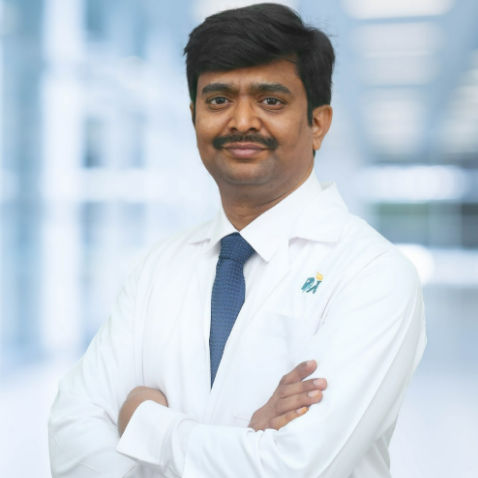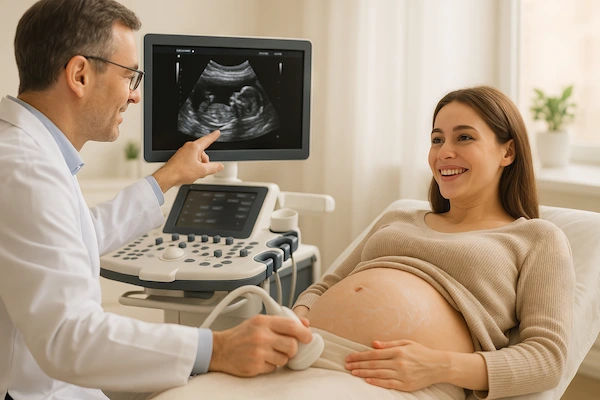Stages of Fissure Healing Explained
Understand the stages of fissure healing, from initial pain relief to tissue repair. Learn how long recovery takes, what symptoms to expect, and tips to support faster healing and prevent recurrence.

Written by Dr. Md Yusuf Shareef
Reviewed by Dr. Shaik Abdul Kalam MD (Physician)
Last updated on 20th Aug, 2025

Introduction
Dealing with an anal fissure can be painful and uncomfortable, but understanding the healing process can help you manage it better. Whether you’re experiencing mild discomfort or severe pain, knowing the stages of fissure healing can give you peace of mind and guide you toward recovery.
What Is an Anal Fissure?
An anal fissure is a small tear or cut in the lining of the anus, often caused by passing hard stools, chronic diarrhoea, or straining during bowel movements. It can lead to sharp pain, bleeding, and discomfort, especially during and after bowel movements.
The good news is that most fissures heal on their own with proper care. However, understanding the healing stages can help you track progress and know when to seek medical help.
Consult a Top Gastroenterologist for the best advice
The 4 Stages of Fissure Healing
Learn how an anal fissure heals over time, from pain relief to complete tissue recovery, and what to expect at each stage.
1. Acute Stage (First Few Days to a Week)
This is the initial phase when the fissure is fresh and most painful.
Symptoms:
- Sharp, burning pain during bowel movements
- Bright red blood on toilet paper or stool
- Mild swelling or irritation
What to Do:
- Keep the area clean by washing gently with warm water.
- Use over-the-counter pain-relief creams (like lidocaine) if needed.
- Increase fibre intake (fruits, vegetables, whole grains) and water to soften stools.
- Avoid straining during bowel movements.
2. Subacute Stage (1-2 Weeks)
In this stage, the body starts repairing the tear.
Symptoms:
- Pain may lessen but can still flare up with bowel movements.
- Bleeding may reduce or stop.
- Mild itching or discomfort may persist.
What to Do:
- Continue a high-fibre diet to prevent constipation.
- Take warm sitz baths (soaking the anal area in warm water) for 10-15 minutes, 2-3 times a day.
- Apply a healing ointment (like petroleum jelly or prescribed creams).
3. Healing Stage (2-6 Weeks)
The fissure begins to close, and symptoms improve significantly.
Symptoms:
- Pain reduces further, occurring only occasionally.
- No more bleeding.
- The tear starts to close, but the area may still feel tender.
What to Do:
- Maintain good bowel habits—don’t hold in stools.
- Stay hydrated and avoid spicy or irritating foods.
- If pain persists, consult a doctor for further treatment.
4. Chronic Stage (Beyond 6 Weeks – If Not Healing Properly)
Some fissures don’t heal within 6 weeks and become chronic.
Symptoms:
- Persistent pain, even without bowel movements.
- A visible skin tag (sentinel pile) near the fissure.
- Recurrent bleeding.
What to Do:
See a doctor—they may recommend prescription creams (like nitroglycerin or diltiazem) or minor procedures (botox injections or surgery).
Tips to Speed Up Healing
Here are simple tips to relieve discomfort and promote faster fissure healing.
- Eat More Fibre – Whole grains, fruits, and vegetables soften stools.
- Stay Hydrated – Drink plenty of water to prevent constipation.
- Avoid Straining – Let stools pass naturally; don’t force them.
- Sitz Baths – Warm water soothes pain and promotes healing.
- Exercise Regularly – Movement helps digestion and prevents constipation.
When to See a Doctor
It’s time to see a doctor:
- If pain lasts beyond 6 weeks
- Heavy bleeding or signs of infection (pus, fever)
- Fissures keep coming back
If you’re struggling with persistent fissures, consult a specialist for personalized treatment.
Conclusion
Remember, most fissures heal with time and proper care. Stay patient, follow a healthy routine, and seek help if needed.
Consult a Top Gastroenterologist for the best advice
Consult a Top Gastroenterologist for the best advice

Dr Bhargav Vuppumalla
General Physician/ Internal Medicine Specialist
5 Years • MBBS MD GENERAL MEDICINE
Bengaluru
Apollo Medical Center, Marathahalli, Bengaluru

Dr Harish K C
Gastroenterology/gi Medicine Specialist
15 Years • MBBS MD DM MRCP(UK) (SCE-Gastroenterology and Hepatology)
Bangalore
Manipal Hospital, Bangalore

Dr. Shivaraj Afzalpurkar
Gastroenterology/gi Medicine Specialist
13 Years • MBBS, MD General medicine (Gold medalist), DrNB (Gastroenterology), MNAMS
Bengaluru
Apollo Clinic, JP nagar, Bengaluru

Dr. Paramesh K N
Gastroenterology/gi Medicine Specialist
16 Years • MBBS, MS ( General Surgery), DNB ( Surgical Gastroenterology)
Hyderabad
Sprint Diagnostics Centre, Hyderabad

Dr Piyush Vishwakarma
Gastroenterology/gi Medicine Specialist
11 Years • MBBS, MD, DrNB,
Delhi
Apollo Hospitals Indraprastha, Delhi
Consult a Top Gastroenterologist for the best advice

Dr Bhargav Vuppumalla
General Physician/ Internal Medicine Specialist
5 Years • MBBS MD GENERAL MEDICINE
Bengaluru
Apollo Medical Center, Marathahalli, Bengaluru

Dr Harish K C
Gastroenterology/gi Medicine Specialist
15 Years • MBBS MD DM MRCP(UK) (SCE-Gastroenterology and Hepatology)
Bangalore
Manipal Hospital, Bangalore

Dr. Shivaraj Afzalpurkar
Gastroenterology/gi Medicine Specialist
13 Years • MBBS, MD General medicine (Gold medalist), DrNB (Gastroenterology), MNAMS
Bengaluru
Apollo Clinic, JP nagar, Bengaluru

Dr. Paramesh K N
Gastroenterology/gi Medicine Specialist
16 Years • MBBS, MS ( General Surgery), DNB ( Surgical Gastroenterology)
Hyderabad
Sprint Diagnostics Centre, Hyderabad

Dr Piyush Vishwakarma
Gastroenterology/gi Medicine Specialist
11 Years • MBBS, MD, DrNB,
Delhi
Apollo Hospitals Indraprastha, Delhi



.webp)
